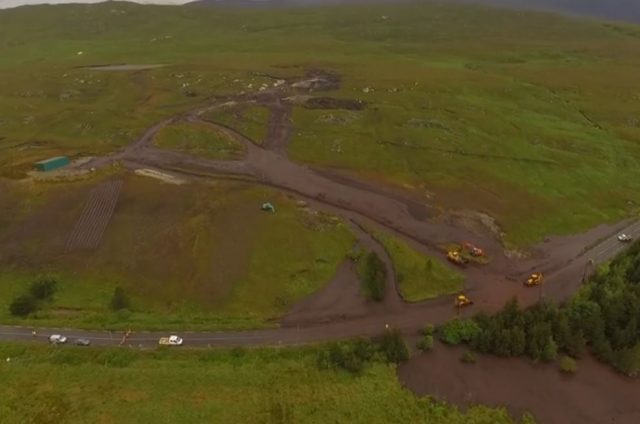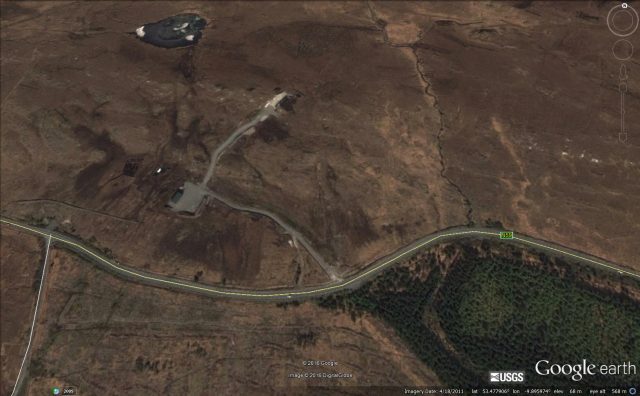25 June 2016
A peat bog landslide in Galway, Ireland
Posted by Dave Petley
Galway peat bog landslide
Various news agencies in Ireland are reporting a peat bog landslide at Clifden in Galway on Thursday night. Reports suggest that 4000 tonnes of material have shifted, blocking the N59 Connemara to Galway city road. Reports suggest that the slope was still moving on Friday.
Peat bog landslides are quite unusual (not least because peat bogs are quite rare), and behave in a manner that is also a little different. This is because the main mass of the landslide is saturated organic material that has a low density. This makes them unusually mobile once they are disturbed. I blogged about a set of peat bog landslides in Ireland back in 2009.
The best view of this peat bog landslide comes from a Youtube video of drone footage:

The Galway peat bog landslide via Youtube
.
Notice the very disturbed area at the crown of the landslide, which is typical of a peat bog landslide. The mobility of the slide is clear as the mass has moved on an unusually low angled slope.
This is the full video of the landslide:
.
Details about the Galway peat bog landslide
The location of the landslide appears to be at 54.4778, -9.8981 (54.4778 N, 9.8981 W). There is good imagery of the site on Google Earth, taken in 2011:

Google Earth imagery of the Galway peat bog landslide, taken in 2011
.
Peat bog landslides are usually associated with heavy rain, as appears to be the case here. Sometimes disturbance of the slope by human activities also plays a key role, but there is nothing to indicate that was the case here. Of course peat bogs take hundreds of years to form, so these events have a long legacy. As peat is also an important store of carbon, it should be actively preserved where possible. Sadly, the rapidly increasing rainfall intensities that are being seen in many places as a result of climate change means that these sorts of events are likely to become more common.


 Dave Petley is the Vice-Chancellor of the University of Hull in the United Kingdom. His blog provides commentary and analysis of landslide events occurring worldwide, including the landslides themselves, latest research, and conferences and meetings.
Dave Petley is the Vice-Chancellor of the University of Hull in the United Kingdom. His blog provides commentary and analysis of landslide events occurring worldwide, including the landslides themselves, latest research, and conferences and meetings.
FYI.
I saw an exhibition about this particular peatbog in Scotland recently. My own country and I didn’t know about it.
http://theflowcountry.org.uk/
Dear who may it concern
I am doing a project in school.I have a questions how much did the 23/8/03 bog burst coast to recover the damaged .Please get back to me asap.
Thanks Amy fitzgerald